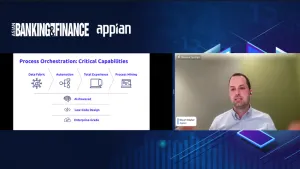
Hong Kong banks lag as digital disruptions increase
More than the digital products, banking executives need to focus on what their customers really want.
When banks in Hong Kong started launching their digital strategies, many of the banking executives thought that their businesses would fly straightaway. However, analysts agree that beyond a well-packaged digital offering, banks should remain loyal to the customer experience and journey. Banks that have the newest and most exciting digital products, but are not aware of customer expectations, are doomed to fail.
With the exponential rise in the number of fintechs and non-bank providers in Hong Kong’s free-for-all market, banks are being pushed to catch up to the competition amidst internal and external difficulties such as costs, the lack of manpower, and heavy regulation. Hong Kong’s close proximity to China makes it even more exposed to the rise of fintechs who have made the mainland their hub. Bankers and industry experts discussed this and more at the 2017 Banking Forum organised by Asian Banking and Finance in Hong Kong on 26 July.
Keith Lin, partner, Financial Services Advisory - Hong Kong, EY, said one in four people in Hong Kong no longer use banks as their primary financial services provider. This number is expected to rise in the coming years, as more and more financial services companies enter the city and innovate according to evolving customer preferences.
“If you look at the virtual wallets provided in the market, you can store value, you can do investment, you can get interest on those things. And the question you ask is why do I even need a bank anymore? You can even buy insurance, buy your mortgage online. Why do you need a bank? The concept of bank, of banking, is broken down,” Lin added.
Loyalty blues
Whilst banks face growing competition from non-traditional players, they are still met with challenges from fellow banks. Priscilla Dell’Orto, principal, Bain & Company, said if banks want to keep their customers, they have to ensure that the experience they offer stands out from the rest. She said banks should focus on meeting customer expectations across the board in order to produce a seamless experience, regardless of whether the channel is traditional or digital.
Dell’Orto noted that a higher level of customer loyalty prevents what Bain & Company calls hidden defections, or instances where customers choose to purchase financial products from banks other than their primary bank. She said that the concept of having just one bank is becoming less common nowadays, and those who have more than one bank tend to purchase higher value products from banks other than their primary bank.
What customers want from their primary bank is consistency, whether they are requesting services from the brick and mortar spaces to the mobile banking app to the ATM and elsewhere. In Hong Kong, Dell’Orto said there is a massive room for improvement in terms of customer loyalty. There is a twenty-eight point difference in the net promoter score (NPS) between the best performing bank, which is Citi, and the worst performing bank, which is Bank of China. The NPS measures customer loyalty within a bank by subtracting the number of bank defectors from the total number of bank promoters.
“What’s important is omnichannel, which is delivering a seamless and consistently outstanding experience across physical or traditional and digital channels. If you have the best mobile banking app out there, but it is completely disconnected from the rest of the customer experience whether in the branches or online or elsewhere, that doesn’t really help. Actually, that angers customers a lot. Because they’re like, okay you can do this fantastic app, but when I go to the branch, no one can actually help me,” she added.
Meanwhile, banks and fintechs continue to have a love-hate relationship in Hong Kong, especially with the presence of many fintechs in mainland China that are planning to foray into the city. Hao Hong, managing director, head of research, Bank of Communications, said banks and fintechs have a very complicated relationship in China. Banks remain to be pushed back by very traditional and conservative regulations, whilst fintechs find it hard to bypass the regulatory framework in order to innovate and break into the tech-savvy Chinese markets.
As the banking industries of Hong Kong and China become more closely intertwined, banking executives have a huge responsibility of ensuring that security remains intact. Security issues vary between the two—China battles internal fraud whilst Hong Kong is beset with rampant money laundering. Simon Leung, head of anti money laundering, Asia Pacific, China CITIC Bank International, said Hong Kong has to protect its reputation as a financial center whilst China has to come up with a reporting mechanism amidst weak law enforcement.
The digital divide
Despite the unanimous opinion that digitalisation is good for banks, banking executives in Hong Kong are still at odds on what digital really means. According to Celent senior analyst Eiichiro Yanagawa, banking executives come up with diverse and inconsistent definitions of the word ‘digital’ when asked during surveys. Yanagawa said whilst all of their answers somehow touch on digital, they do not fully capture the essence of the word.
“You can see the customised experience and mobile startup as different characteristics of digital in the executive mind. However, the list of attributes has grown. Probably you could argue that digital banking has existed since 1950. Now we are in the midst of the topic where at least five different trends are radically changing our banking industry and beyond. They are mobile equity, social cloud and big data, and finally AI and robotics,” Yanagawa said.
With the evolving definition of digital, disruptions continue alongside the rise of new products, enhanced infrastructure, and growing networks in the digital space. One particular development in Hong Kong is the direction towards real-time cross border payments. Esmond Kin Ying Lee, senior advisor, Financial Services Development Council, said the Hong Kong Monetary Authority (HKMA) is working on a faster payment system for small value payments, which will eventually be adopted by larger-value payments.
“There is a growing number of markets developing new market infrastructure to support faster payments. We see this in Singapore, in Australia, China already has infrastructure, and Hong Kong has an advantage. So obviously, there’s opportunity for discussions about linking up those infrastructures. The other aspect is there are a lot of new players, all sorts of non-bank providers who are trying to enter the space and improve the propositions,” said Stephan Levieux, head of deposits, payments and cash management strategy, Hang Seng Bank.
It is important for banks to remain focused on the customer experience as they strive to develop more efficient and more exciting digital products. Jimmy Chan, chief operating officer and head of operations management, ICBC Asia, said banks need to transform all these digital growth opportunities to be more customer-focussed. Lin added that digital is just a part of the story—banks need to create a business strategy for their customers’ journey and work within the whole ecosystem.
“All this demand at the back is linked up with some kind of customer demand. The problem of most traditional banks is we are too focused on the product capability, or the inhouse competence, how to serve the customer in the system or the product functionality without knowing why the customer needs to make a cross-border payment, without knowing why the customer has to make a payment to the payee,” said Chan.
Banks in Hong Kong should not cower at the sight of non-bank players, rather they should leverage on their established networks, their experience in the industry, and the presence of existing distribution channels. From there, banking executives could find ways to work from within and transform their banks to a more customer-focussed and forward-looking company that moves with the times.
















 Advertise
Advertise






